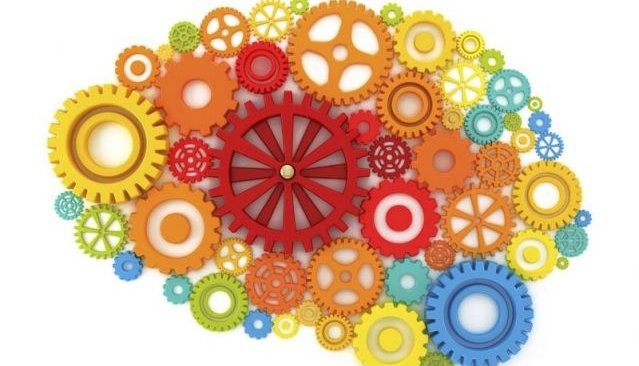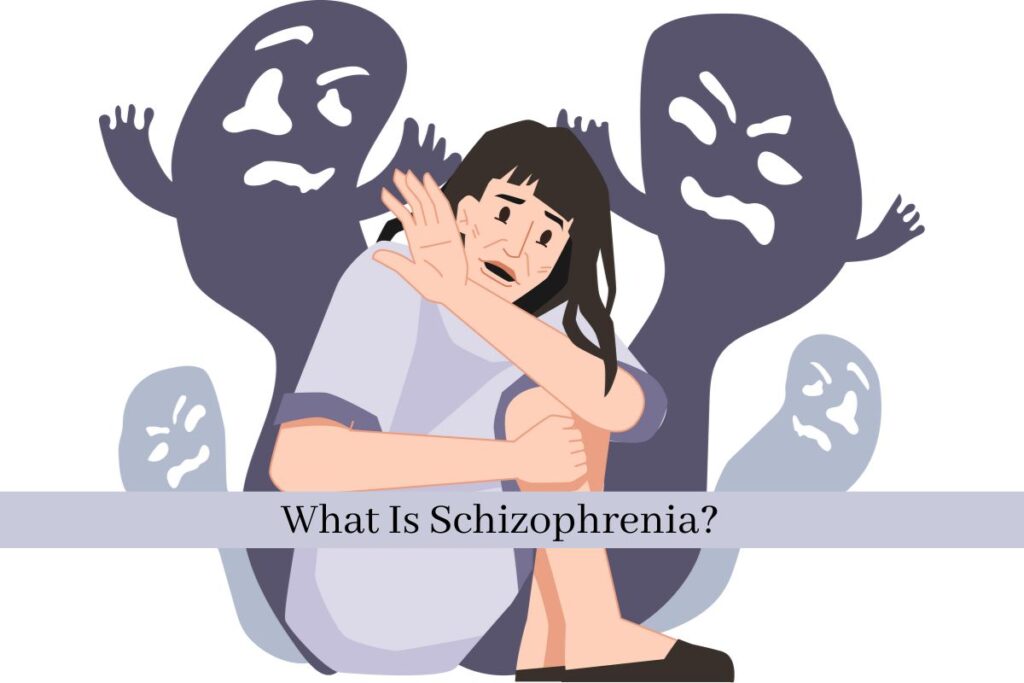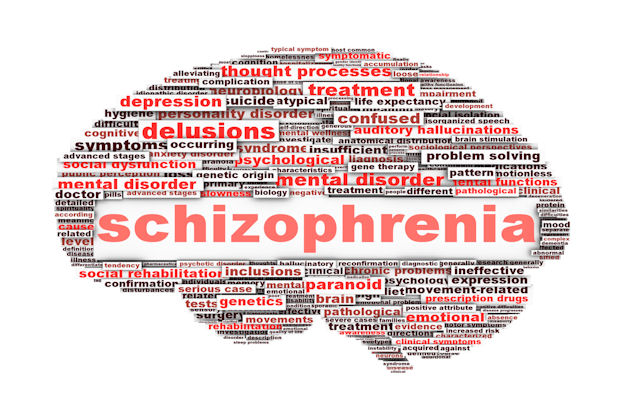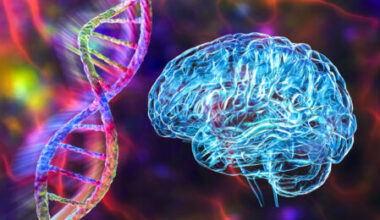Although hallucination and delusion are the most prominent and well-discussed symptoms of schizophrenia, it is important to note that schizophrenia also consists of some cognitive symptoms that have a significant impact on a person’s life. These are most likely the first signs you should look for in a schizophrenic patient. In this article, I will walk you through the cognitive symptoms of schizophrenia and explain how they differ from the other types of symptoms.
Key Takeaways
- Schizophrenia is a persistent, severe mental condition that affects a person’s ability to think, act, express emotions, perceive reality, and interact with others.
- Poor executive functioning, problems with focusing, anosognosia, and memory Issues are some cognitive symptoms of schizophrenia among others.
- Treatment for schizophrenia is typically a combination of medication, therapy, and self-management approaches. Antipsychotics are one type of medication.
What Are Cognitive Symptoms?

Cognitive symptoms are widespread and can be caused by a brain or spine tumor, pharmaceutical adverse effects, other medical diseases, or sleep problems. Cognitive symptoms might cause feelings of exhaustion, worry, anxiety, depression, or sadness.
What is Schizophrenia?

Schizophrenia is a persistent, severe mental condition that affects a person’s ability to think, act, express emotions, perceive reality, and interact with others. Though not as frequent as other serious mental illnesses, schizophrenia can be the most persistent and severe.
People with schizophrenia frequently struggle to function properly in society, at jobs, at school, and in relationships. They may appear to be fearful and withdrawn, and they may appear to have lost contact with reality. This chronic disease cannot be cured, but it can be managed with correct treatment. Untreated schizophrenia frequently impairs your work, social, romantic, and other relationships. It can also lead you to have difficulty organizing your thoughts, and you may act in ways that put you in danger of injury or sickness.
The Cognitive Symptoms of Schizophrenia

Typically, cognitive symptoms of schizophrenia appear before indicators of sickness. These cognitive symptoms are associated with social and functional problems. Most cognitive symptoms are subtle, making them difficult to detect. They are usually only discovered during cognitive testing. The cognitive symptoms of schizophrenia may be related to abnormalities in the brain. Schizophrenia patients have lower cortical thickness, which may contribute to changes in thinking and memory. These symptoms include:
#1. Disordered Thinking
People suffering from this illness may have disordered thinking. They may be unable to organize their thoughts, which may result in significant social and occupational problems.
#2. Poor Executive Functioning
This indicates that people with schizophrenia have a difficult time understanding, processing, and applying information to make rational judgments. People employ their executive functions to connect previous learning or experiences with decisions or current actions. This helps with planning, organizing, strategic thinking, paying attention, memory, and time management.
#3. Problems With Focusing/Concentration
The individual may have difficulty paying attention or focusing on a task. Even if they can focus for a short period, their failure to maintain attention or concentration makes things much more challenging.
#4. Anosognosia
This is a cognitive symptom in which a person has significant deficiencies in self-awareness. Many persons with schizophrenia are unaware that they have schizophrenia symptoms.
#5. Memory Issues
Working memory allows us to store visual imagery as well as spoken information for a brief period. The person suffering from this condition has difficulty applying information immediately after learning it. This can make task performance, extremely difficult and nearly impossible for some people with this illness.
Other Symptoms of Schizophrenia
Beyond the cognitive symptoms of schizophrenia, there are other symptoms referred to as the negative and positive symptoms of schizophrenia present in a schizophrenic patient.
These are the five most common negative and positive symptoms of schizophrenia.
#1. Delusion
These are false beliefs that you believe despite overwhelming evidence that they are incorrect. For instance, you may believe that someone is controlling what you think, say, or do.
#2. Hallucination
You continue to believe that you can see, hear, smell, touch, or taste things that do not exist, such as hearing voices or seeing objects or people.
#3. Disorganized or Incoherent Speaking
You may have difficulty arranging your thoughts when speaking. This may appear to be difficulty remaining on the subject, or your thoughts may be so muddled that others are unable to comprehend you.
#4. Catatonia
You may move in ways that people around you do not expect. You may, for example, turn around a lot for no apparent reason, or you may not move at all.
#5. Negative Symptoms
These are defined as a decrease or loss of your capacity to do tasks as planned. You might, for instance, quit making facial emotions or talk in a flat, emotionless tone. A lack of motivation is another negative sign, especially when you don’t want to mingle or do things you normally love.
Self-Help for the Cognitive Symptoms of Schizophrenia

You can have a full and meaningful life. Most persons with schizophrenia can have successful relationships, work or pursue other meaningful interests, be a part of their community, and enjoy life with the correct treatment and these relevant self-help tips
#1. Accept Your Medical Diagnosis
As unpleasant as a schizophrenia diagnosis can be, resolving to take an active role in treatment and self-help is critical to your rehabilitation. This includes adopting a healthier lifestyle, taking prescribed drugs, and attending medical and therapy sessions.
#2. Don’t Believe the Stigma Associated With Schizophrenia
Many misconceptions concerning schizophrenia are unfounded. Take your condition seriously, but don’t fall for the idea that you can’t get better. Associate with people who see you for who you are, not just your illness.
#3. Consult With Your Doctor
Assist your doctor in ensuring that you are receiving the correct type and dosage of medication. Be open and honest about any adverse effects, concerns, or other treatment challenges.
#4. Seek Self-Help and Counseling to Help You Manage Your Symptoms
Don’t rely solely on drugs. Self-help tactics can assist you in managing symptoms and regaining control of your health and well-being. Supportive therapy can teach you how to question delusional beliefs, disregard voices in your head, avoid relapse, and inspire yourself to stick with treatment and self-help.
#5. Set and Work Toward Life Objectives
You can work, have relationships, and live a full life if you have schizophrenia. Make important life goals for yourself outside of your sickness.
Cognitive Remediation Techniques in Schizophrenia

Cognitive remediation is a behavioral training strategy that uses scientific learning principles to target cognitive deficits with the ultimate goal of improving functional results. Its effectiveness is increased when delivered in a setting (formal or informal) that provides support and opportunities for extension to daily functioning.
A few cognitive remediation (CR) programs are primarily concerned with a strategy-coaching approach, in which the therapist and a small group of patients discuss ways and tactics for improving cognition and using cognitive training exercises.
The majority of CR programs attempt to address cognitive domains commonly linked with deficiencies in schizophrenia, such as verbal and visual working memory, executive function, attention, and processing speed. This is a top-down method of training, to improve a higher-order cognitive process.
Treatment for Schizophrenia Cognitive Symptoms

Treatment for schizophrenia is typically a combination of medication, therapy, and self-management approaches. Antipsychotics are one type of medication. These drugs prevent your brain from using particular molecules for cell-to-cell communication.
Your doctor may also prescribe other medications to treat symptoms that occur alongside or as a result of your schizophrenia symptoms. They may also prescribe drugs to assist lessen antipsychotic medication adverse effects such as tremors.
Another form of treatment is Coordinated Specialty Care (CSC). This is a multidisciplinary strategy for treating schizophrenia when symptoms first arise. It integrates medicine and therapy with social services, employment, and education. The family is as involved as possible. Early therapy is critical for patients to live a normal life.
While medication can assist reduce symptoms of schizophrenia, numerous psychosocial treatments can help with the illness’s behavioral, psychological, social, and vocational issues. Patients can also learn to manage their symptoms, recognize early warning signs of recurrence, and develop a relapse prevention plan through therapy. Psychosocial therapy includes the following:
Rehabilitation
This focuses on social skills and employment training to assist people with schizophrenia in functioning in the community and living as independently as possible.
Cognitive Remediation
This is the process of learning ways to compensate for issues with information processing. It frequently employs drills, coaching, and computer-based activities to improve mental skills such as attention, memory, planning, and organizing.
Electroconvulsive Treatment
Electroconvulsive treatment (ECT) is another form of treatment for schizophrenia that involves the attachment of electrodes to the person’s scalp. Doctors provide a tiny electric shock to the brain when patients are under general anesthesia. ECT therapy normally consists of 2-3 treatments each week for several weeks. Every shock treatment results in a controlled seizure. Over time, a succession of therapies leads to an improvement in mood and thinking.
What Are the Three Main Cognitive Disorders?
Dementia, amnesia, and delirium are all examples of cognitive disorders. These disorders cause individuals to lose their sense of time and space. A cognitive disorder can be diagnosed as either temporary or progressive, depending on the cause.
Is Schizophrenia a Cognitive Disorder?
Neurocognitive impairments occur in the great majority of people with schizophrenia, and they range from mild, relatively restricted deficits to dementia-like syndromes as early as the first psychotic episode.
Conclusion
At the end of this incredible piece, you will have learned that cognitive symptoms of schizophrenia are most likely the first signs one should look for in a schizophrenic patient and that while schizophrenia can be really debilitating, it can be well managed with self-help attitudes and treatments.
Related Articles
- Antidepressants Pros and Cons: All You Need
- These Are 23 Best Jobs for People with ADHD
- DOWN SYNDROME VS AUTISM: WHAT ARE THE DIFFERENCES?
- The Ultimate List of Emotional Manipulation Tactics (Updated)






